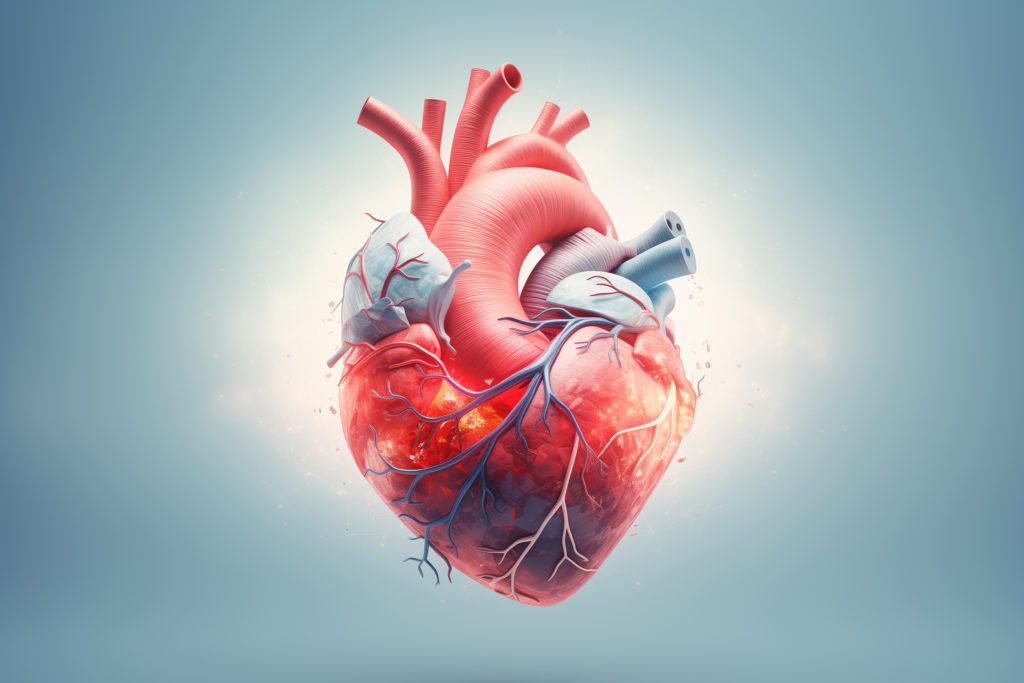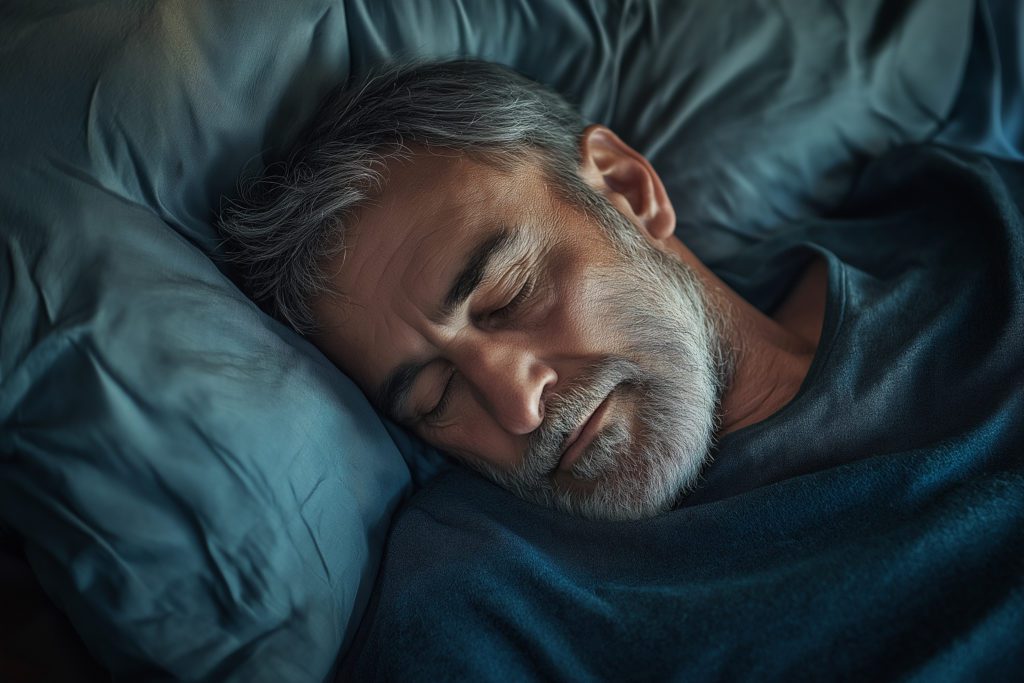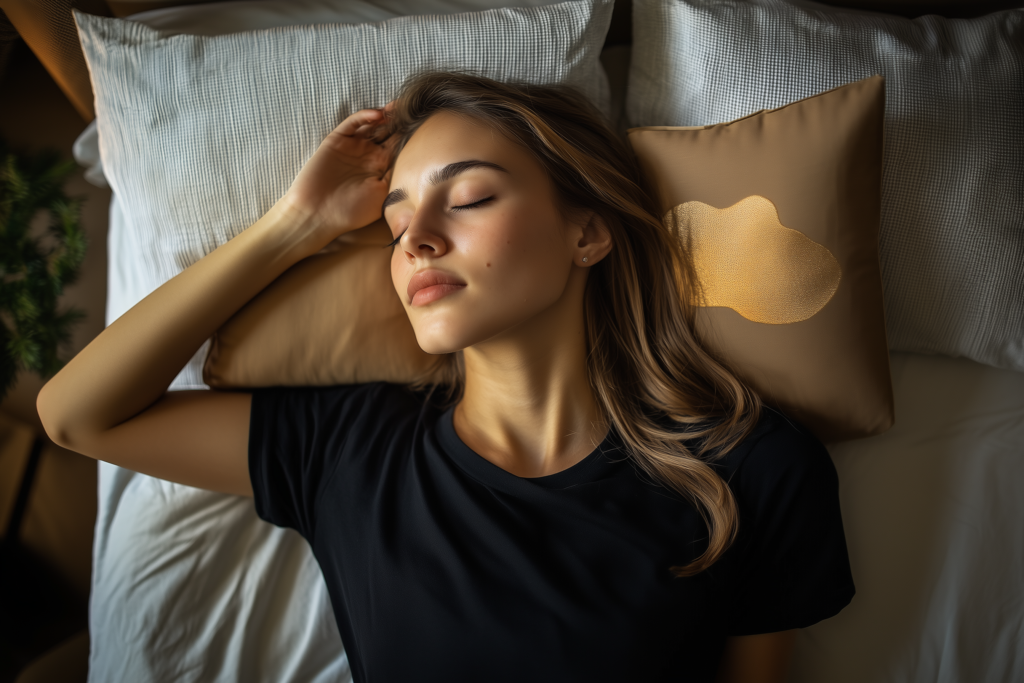
Is Sex Drive Affected by Sleep? Here’s What Science Has to Say
Are you wondering if sleep affects your sex drive? Discover how poor sleep impacts libido, hormones, and sexual health, with insights from the latest scientific research.

Sleep is one of the most vital aspects of our health. It impacts everything from mood and energy levels to immune function and mental clarity. But did you know that sleep can also affect your sex drive? If you've ever felt too tired or stressed to be intimate, you're not alone—there's science behind it. Research shows that the quality and quantity of sleep can significantly influence your libido.
But how exactly does sleep impact your sex drive? And is there really a direct link between the two? In this article, we'll discuss how your sleep patterns can affect your sexual health and well-being, and what the latest scientific studies have to say about it.
The Connection Between Sleep and Hormones
Sleep plays a crucial role in regulating the hormones that control our bodies, including those that influence our sex drive. Hormones like testosterone and estrogen are directly linked to libido and sexual health, and the quality of our sleep heavily influences both. When we sleep, especially during deep sleep stages, our bodies engage in processes that help balance and replenish these hormones.
Testosterone, which is vital for sexual desire in both men and women, is produced during deep sleep, primarily in the slow-wave sleep (SWS) phase. A study published in the Journal of American Medical Association (JAMA) found that men who were sleep-deprived for even one week had significantly lower levels of testosterone. This drop was associated with decreased sexual desire and energy levels.
Similarly, estrogen production, which regulates sexual function in women, is also influenced by sleep. A lack of restorative sleep can disrupt the natural rhythm of estrogen release, leading to hormonal imbalances that may reduce libido.
Moreover, the sleep hormone melatonin, which helps regulate the sleep-wake cycle, plays an indirect role in sexual health. Research indicates that higher melatonin levels during sleep promote restful sleep and also have a positive effect on sexual health.
A study in Frontiers in Psychiatry showed that melatonin supplementation improved sexual function in individuals with sleep disorders, reinforcing the idea that a good night's sleep fosters a healthy balance of sexual hormones.
In essence, sleep is not just a time for rest—it is a crucial period for your body to restore and maintain the hormones that directly affect your libido. When sleep is disrupted, it can lead to imbalances that may negatively impact your sexual health. So, the next time you're feeling off, consider whether poor sleep might be to blame for a drop in your sex drive.
The Impact of Sleep Deprivation on Libido
Sleep deprivation can wreak havoc on more than just your energy levels—it can also have a significant impact on your libido. When you don't get enough sleep, your body becomes stressed, and stress hormones like cortisol increase.
High cortisol levels can suppress the production of sex hormones, making it harder to feel in the mood. In fact, a study published in Sleep Science journal found that individuals who were sleep-deprived reported significantly lower sexual desire and fewer instances of sexual activity.
Additionally, sleep deprivation can lead to physical and emotional fatigue, both of which are enemies of a healthy libido. When you're exhausted, your body's natural response is to focus on rest and recovery rather than sexual engagement.
A lack of sleep can also affect your mood, leading to irritability, anxiety, and even depression—all of which can dampen your interest in sex.
But it's not just the mental toll that poor sleep takes on your sex life.
Sleep deprivation can also impair physical function. Research published in the World Journal of Men's Health showed that sleep-deprived individuals had diminished sexual function, which could impair sexual arousal and performance. This combination of emotional, physical, and hormonal effects makes it clear that sleep deprivation isn't just a nuisance—it can have a serious impact on your libido.
If you're finding that your sex drive is lower than usual, the culprit might be as simple as not getting enough sleep. Prioritizing rest is essential for both your emotional and sexual health.
The Role of Sleep Disorders
Sleep disorders, such as insomnia, sleep apnea, and restless leg syndrome, are more than just sleep disruptors—they can also have a direct impact on your libido and sexual health.
When your sleep is consistently disturbed by these conditions, it can lead to hormonal imbalances, fatigue, and heightened stress—all of which are known to affect sex drive.
Insomnia
Insomnia, which is characterized by difficulty falling or staying asleep, can leave you feeling drained and mentally exhausted. A study published in The Journal of Psychosomatic Research found that individuals with insomnia were more likely to report a decrease in sexual desire.
Sleep Apnea
Sleep apnea, another common sleep disorder, is characterized by frequent pauses in breathing during sleep. This disorder can lower oxygen levels in the body and disrupt the sleep cycle, particularly the restorative stages of sleep that are crucial for hormone production.
A study in the Frontiers in Psychiatry found that individuals with sleep apnea had significantly lower testosterone levels, which contributed to reduced sexual desire and erectile dysfunction.
These sleep disorders not only affect your ability to rest but also directly influence the hormonal balance and energy levels needed to maintain a healthy sex drive. If you struggle with any of these conditions, addressing them could be key to restoring both your sleep and your libido.
The Takeaway
If you've ever wondered, "Is sex drive affected by sleep?"—the answer is a resounding yes. By improving your sleep habits and addressing any underlying sleep disorders, you can take a significant step towards improving both your sleep and your sex life.

Written by
Dr Aqsa
As a Medical Doctor, Dr Aqsa, uses her knowledge to craft complex medical information that is understandable to the general public. For years, she has tried to improve health literacy and empower readers with valuable health knowledge through her articles, blog posts, and educational materials.
Download Pillow
Get help
Press & News
Legal
Connect
X (Twitter)
Company
Copyright © Neybox Digital Ltd.



